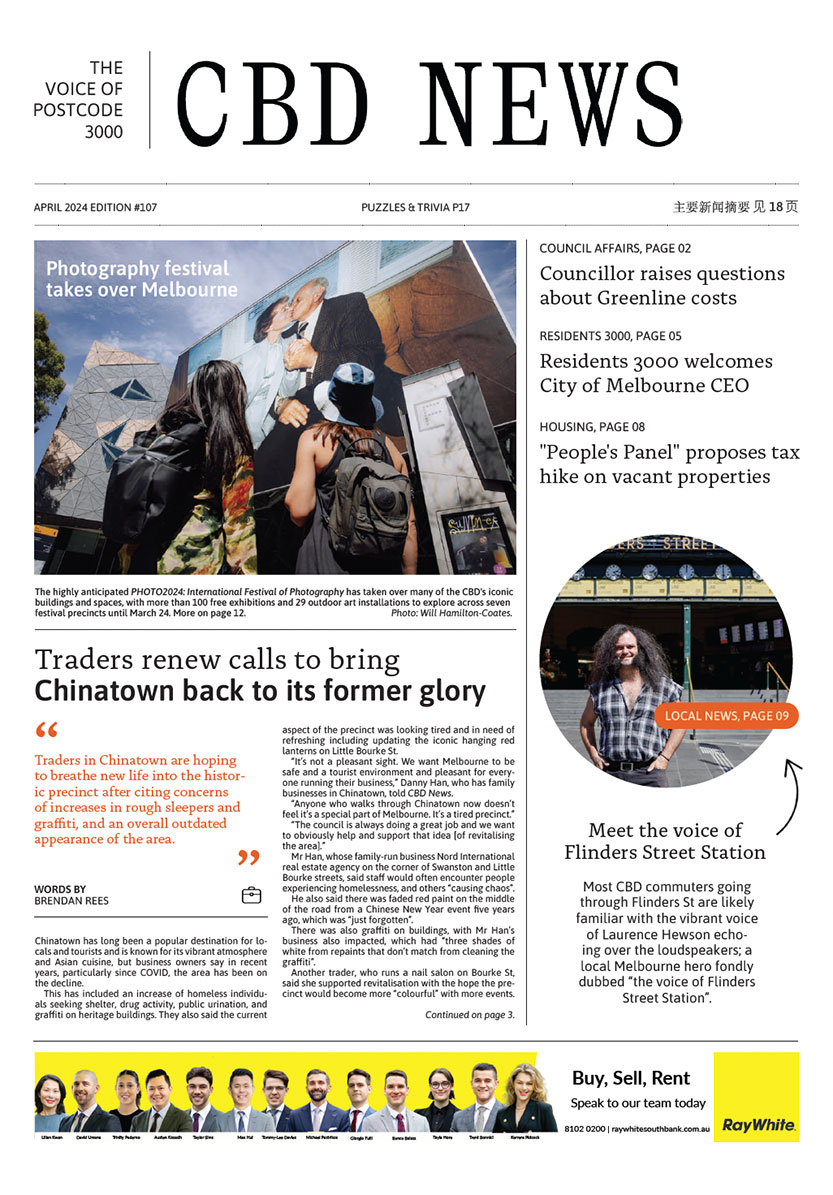The women at Manning’s on the concourse at Flinders Street Station
By Dr Cheryl Griffin
March is Women’s History Month so as I look closely at this photograph, taken in 1948 at Manning’s Chemist on the concourse at Flinders Street Station, I’m thinking about these four young women and wondering what their lives were like in the years following the end of World War Two.
At some time in the past, the women have been identified as Miss Carter, Miss Pawsey, Miss Derham and Mrs Newell in that terribly formal way that was still the social convention years later in the 1960s when my friends’ parents and mine called each other Mr This and Mrs That, never using first names, even though they knew each other quite well. And if Mrs Newell was identified by a given name or initials, it would be her husband’s, not her own, unless she was a widow.
My generation was keen to push the boundaries and if we were lucky our parents encouraged us to go on to further education, but for most school children of the 1940s, boys and girls alike, their school lives ended around age 14 and they went out into the world of work whether they liked it or not. They went into apprenticeships or took up jobs in factories or shops or businesses or worked in outdoor labouring jobs. Very few went on to do further training. Girls might have gone to business college or teachers’ college, but not many went to university.
On the day I reached the age of majority (still 21 for my generation), I sat my final university exam and looked forward to a future that offered financial security, independence and opportunities galore, or at least that was my spin on things. Did these women look into their futures with hope? They had grown up during a time when their mothers, aunts, older sisters and friends struggled to keep households running despite the Depression of the 1930s and war shortages, rationing, brownouts and men, the traditional wage earners, being away at the war. Some had joined women’s branches of the armed services or the Women’s Land Army. Many, possibly even some of these women, had worked in factories, taking the places of men who were serving in the war. If they were still at school, they may have helped dig air raid trenches in the school playground and they would certainly have taken part in patriotic fund-raising activities.
As I look again at this image, I wonder whether the four women still lived at home? Were they young marrieds or maybe even war widows? There was a housing shortage just after the war. Besides, children generally stayed at home until they married, so yes, I think the three unmarried women probably did live at home, but under their beds or on top of their wardrobes there was probably a hope chest where they added items useful to their future lives as wives and mothers. There were bound to be tablecloths, runners and serviettes that they’d embroidered at school and family and friends would add to the collection on birthdays and at Christmas. They might even have added some items from Manning’s Chemist, especially if they were entitled to a staff discount.
These young women, who represent my mother’s generation, are smiling. They look confidently at the camera and it feels as though the future is something they look forward to. They welcome it, just as they welcome their customers. They have jobs and with that comes economic independence, although it will be a long time before women receive equal pay or superannuation rights. If they marry and have children, they will probably leave the workforce, although they will possibly return one day, just as my own mother did in the 1960s. Since the entry of so many women into the workforce during the war years, they will have new issues to consider, such as the needs of working mothers, childcare provision and workplace opportunities. They will have to juggle their private and working lives in a way their mothers did not, but in doing so, they will provide my generation, the Baby Boomers, with previously unheard-of opportunities.
It seems fitting, then, that the four women in this image worked for such forward-looking employers and that Jean Manning, whose husband Nigel Manning ran the Flinders Street Station pharmacy (and was later Dean of the College of Pharmacy), should be a working pharmacist herself, the mother of four children and the first woman elected to Hawthorn Council.

Experts gather to discuss “city-shaping” Greenline project






 Download the Latest Edition
Download the Latest Edition